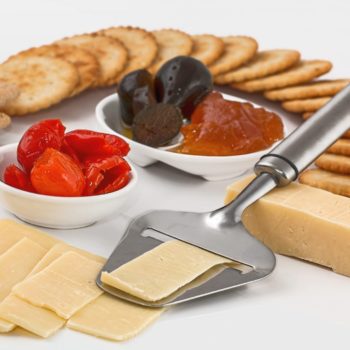UK agrifood tariffs would represent up to a €400m threat to Irish dairy exports

Farmers on both sides of Irish Sea voice concerns about the serious consequences a no-deal Brexit could spell for their livelihoods, with Dairy Industry Ireland stressing the urgent need for a resolution to be reached
21 February 2019
Dairy Industry Ireland, the Ibec group that represents primary and secondary dairy processors in Ireland, has said that the UK government needs to appreciate the severe economic, social and environmental damage on the island of Ireland from the possible application of agrifood tariffs.
It comes following the announcement at the UK National Farmers Union annual Conference in Birmingham by Michael Gove, Secretary of State for Environment, Food and Rural Affairs of the United Kingdom, that the UK will apply tariffs to food imports to protect British farmers in a no-deal scenario. Recent CSO figures put milk intake from Northern Ireland to the south for manufacture at over 804 million litres for 2018.
“Milk exports south of the border are of vital importance to the economic viability of the dairy industry in Northern Ireland and there simply is not the processing capacity in Northern Ireland or in fact the rest of the UK to handle this milk,” said Conor Mulvihill, director of Dairy Industry Ireland.
“With less than 900 hours remaining to the proposed Brexit day, it is vital a resolution is reached and a strong backstop protecting dairy trade and regulations on the island of Ireland is maintained,” he added.
‘Very high’ stakes
DII studies have shown that for the single product of cheddar alone, the tariff threat is about €155 million, with a threat of about €400 million on overall dairy exports to the UK.
DII says it is engaging closely with Food Drink Ireland to push for a tariff stabilisation fund and state aid flexibilities to help farmers offset the impact of UK tariff if a no-deal Brexit occurs.
“We are also working across government to positively look for solutions that will deliver for Irish dairy in both a no deal and a deal scenario,” Mulvihill added. “The stakes are very high with our economic modelling showing both prices rises and severe trade losses in crash out scenarios.
Even if the UK use a Tariff Rate Quota system on products such as dairy to mitigate disruption, the DII is concerned that “this will put the Irish dairy industry competing toe to toe with larger rival such as New Zealand and the US for dairy market share in the UK market”.
‘Catastrophic’ for British farmers and exporters
Meanwhile, things are looking no brighter on the other side of the Irish Sea. The National Farmers Union (NFU) for England and Wales has voiced concerns that a no-deal Brexit would be “catastrophic” for British farmers.
The NFU has cited six reasons why it believes this would prove the case on its website here. This includes the concern that export tariffs could be imposed on the 60% of UK food, feed and drink that go to the EU. This would increase export tariffs to an average of 27% on chicken, 46% on lamb, 65% on beef, and range from €172 to €1,494 per tonne in pork.
“Leaving the EU without a deal could well mean a trade embargo is imposed on animals and animal products going to the EU which, along with punitive tariffs on all goods going into the EU, would severely restrict livestock farmers’ export markets,” said NFU president Minette Batters.
“Meanwhile, the potential for government to unilaterally lower import tariffs on food could lead to British farmers being undercut by food coming into the country which may have been produced to lower standards than is legally required of UK farmers,” she added.



 Print
Print






Fans 0
Followers